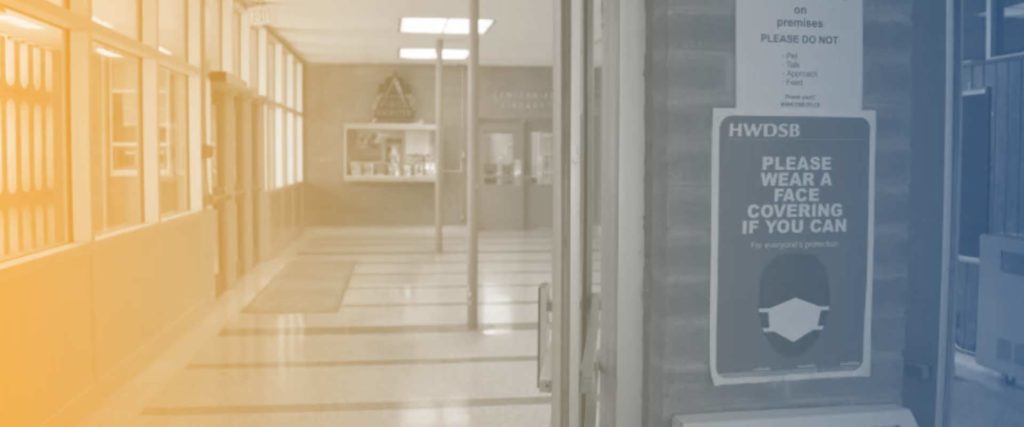
Because they are unable to wear a mask, some students with disabilities are forced to learn online.
Tommy Katsarakis’ mother says there’s “no way” her son, who has low-functioning autism, will wear a mask on his first day of high school at Bernie Custis Secondary.
Tommy is looking forward to starting school, according to Caroline Naylor. She is, nonetheless, concerned for his safety.
“Masks are impossible for him because he has severe sensory issues with anything near his lips, including eating… I’m concerned about people passing judgment “Naylor explained.
“The autistic brain is misunderstood… That makes me extremely concerned. He’s not going to wear a mask, there’s no way.”
Even worse, Tommy lacks the skills to explain his difficulties, and Naylor will be unavailable to assist him.
For families, educators, and students, the transition from summer to fall classes has been difficult, but it will be much more difficult for those with disabilities and those with individualized education plans (IEPs).
“The reduction in health services has had a significant impact on the development and support required for children and youth with developmental and physical disabilities,” said Bruce Squires, president of McMaster Children’s Hospital.
“It’s hampered the extent to which those concerns are even discovered, as well as the timeliness with which therapy is provided.”
‘It’s definitely not safe,’ says the teacher.
Alice Smith, a teacher at Sir Allan MacNab Secondary School, is working from home due to her contamination-related obsessive compulsive disorder. She only found out recently, and if she had to teach in person, she was considering retiring.
“I’m feeling bad because I’m at home while many of my colleagues and students, whom I care deeply about, are in a less-than-ideal position, one that could be dangerous. It is unquestionably dangerous “she said.
Her two special needs children are also remaining at home. Like Tommy, her son would be unable to wear a mask.
Smith added, “We just didn’t feel it would be safe for them.”
Friends will’move on without us,’ as they say.
Samantha Jackson is in the eighth grade in Hamilton’s public schools this year. Luna, her younger sister, also has an IEP. They were supposed to study in person, but due to their mother’s weakened immune system, they would instead learn through a virtual school.
“I don’t think it’ll work for me or my sister,” she added. “We need to be taught in person.”
“I’m frightened and upset because… our buddies are going to go to online school without us.”
Manny Figueiredo, the director of the Hamilton-Wentworth District School Board, recently told CBC that one of the main challenges schools would have during the epidemic will be preventing children and educators from socializing.
Various adjustments for special education have been authorized by both public and Catholic school boards.
“It’s critical that they be prioritized,” Squires said. “I believe schools are making an effort to ensure that those students are supported and actually assisted in countering the harm and impact that the school shutdown has already done.”
Public health nurses will be on hand to assist schools and kids in following COVID-19 guidelines.
Read original: https://www.cbc.ca/news/canada/hamilton/students-disabilities-school-covid-19-1.5718481
